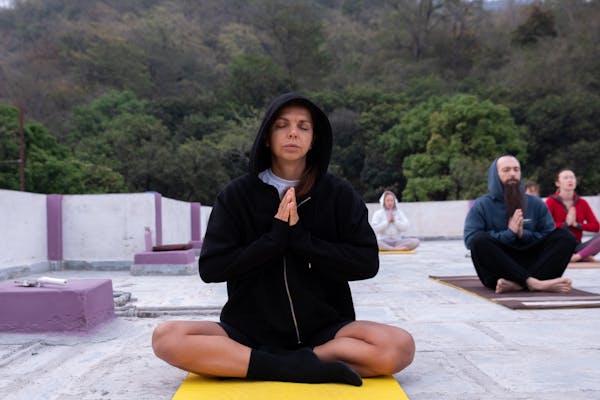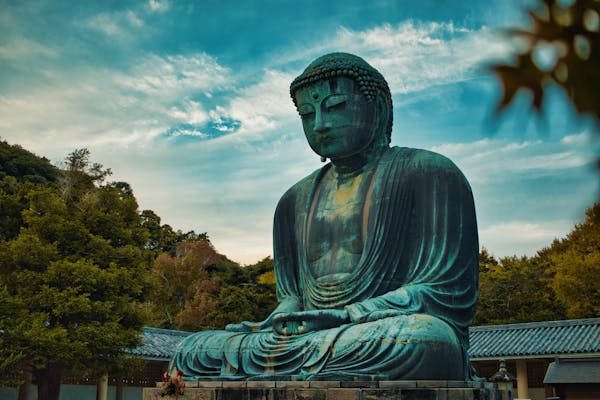
Table of Contents
Power Of Meditation The noise and distraction in the world today call for inner peace more than ever. The power of meditation unlocks one to serenity, lucidity, and emotional equilibrium. This blog will look at the transformative effect of meditation, its different practices, and how it can help people attain lasting inner peace.
What is Meditation?
This practice is commonly known as meditation, which is a mind control technique concentrating the mind in order to achieve a heightened state of awareness accompanied by emotional calmness. It can be perceived as spiritual or philosophical work, but its benefits are much further-reaching.
Different cultures have their own interpretations, but the principles themselves have remained more or less consistent: to quite the mind and connect with one’s inner self.
The History
Indeed, meditation has an early history and culture in the traditions of Hinduism, Buddhism, and Taoism. Each of these cultures gained its distinct techniques and philosophies about meditation.
For instance, the primary use of meditation in Buddhism as a means to enlightenment, while most often self-realization and union with God relate to it in Hinduism.
Science Behind Meditation
There are thousands of studies on the effect of meditation on both mental and physical well-being. Most research, however, has focused more on the frequent reduction of stress in a person as a consequence of meditation that will focus the mind and even help with emotional well-being. These physiological changes occur when we meditate:
Stress Hormones Lowered: Decreasing cortisol is the hormone associated with Stress-Autonomous.
Increased Grey Matter Due to meditation, the brain may have more grey matter that is linked with memory and emotion regulation or decision.
Boosts Immune System Some research studies claim that meditation may boost one’s immune system, hence reducing the likelihood of illness.
These scientific discoveries are evidence of how meditation practice helps humans achieve inner peace and well-being generally.
Intermediary Benefits
Inner peace
Perhaps the greatest benefit of meditation is that it builds inner peace. In trying to quiet the mind and focusing inward, we begin to disengage ourselves from outer stressors and distractions. In such a process, we learn to find inner tranquility-a feeling or emotion of contentment and serenity.
2. Emotional Control
Meditation facilitates the awareness of our emotions. With mindfulness, we are taught to watch our emotions and perception without judgment. This makes us react appropriately to our emotions rather than relating impulsively to them. In due time, it will make us emotionally more stable and resilient.
3. Enhanced Focus and Concentration
Concentration can be pretty challenging to preserve in our fast world. How many things have you performed without being focused properly? Mindfulness training enables the mind to concentrate on a single point of concentration, whether breath, mantra, or visual object. Indeed, this makes one improve at the daily tasks and, thus increase productivity and cognitive function.
4. Stress Reduction
Meditation could help assuage chronic stress by promoting relaxation and a sense of serenity. It could reduce anxiety and feelings of being overwhelmed as it helps to create a buffer against challenges in daily life, thus resulting in overall well-being.
5. Better Sleep
Many have sleep disorders due to racing thoughts or stress. Meditation can calm the mind before sleep and thus help sleep during the night. The best techniques for this are guided imagery and progressive muscle relaxation.
6. Growing in Self-Awareness
It is even more likely to result in self-awareness because it encompasses a tendency of reflection. It allows a person to know his or her thoughts, actions, and habits, thus promoting personal growth and development. With more self-awareness, people are able to understand their motivations better and thus improve their relationships.


Types of Meditation
Meditation can be practiced in numerous forms, each with differing techniques and objectives. Some of the most well-known types that contribute to the human ability to tap into the power of meditation include:
1. Mindfulness Meditation
This practice is attention to the present moment without judgment. It can be practiced anywhere, anytime because it applies to everyone. Mindfulness meditation is practiced in breath awareness as well as awareness of thoughts as they arise, developing inner peace.
2. Loving-Kindness Meditation (Metta)
The loving-kindness meditation involves individuals focusing on developing love and care for themselves and others. The individual usually repeats some phrases wishing for well-being both from themselves and others. This would enhance the emotional well-being of the person as well as foster a feeling of connection with others.
3. Transcendental Meditation
Transcendental Meditation involves repetition of a special mantra while keeping the mind at rest and deeply relaxed. It is often performed for 20 minutes, twice a day, to help mitigate stress and provide inner peace.
4. Guided Meditation
One of the most familiar types is directed meditation: The practitioner listens to a teacher or recording that guides them through a meditative experience. This is helpful for the beginner who needs structure and direction.
5. Body Scan Meditation
This is meditation in which the focus is placed upon different parts of the body in an attempt at relaxing and becoming more aware. Systematic scanning of the body releases tension and helps develop a feeling of deep inner peace.
How to Get Started with Meditation
With meditation, even if one is a beginner, then it may intimidate the person who wants to know how to practice this. Here are the steps on how to get started:
1. Prepare a dedicated space
Choose a quiet, comfortable space where you can meditate without any distractions: maybe in your room or a garden and any other place that seems to be peaceful. Personalizing the space through decorating it with calming elements like candles or flowers can enhance the atmosphere
2. Set a timer
Start with short sessions, say 5-10 minutes, and gradually increase to longer sessions as you get accustomed to it. Having a timer makes you focus more on the session than the actual time ticking.


3. Attempt a Technique
You need to find the right meditation technique for you. Try many so that you will see which one feels better for you. Mindfulness and guided meditation are among them, but many will depend on your personal choices and preferences and which one works for you.
inner peace One simple way to anchor your meditation practice is by focusing on the breath: Inhale deeply through the nose, and exhale slowly through the mouth with a rise of the abdomen. This rhythm calms the mind as you settle into a meditative state.
5. Patient and compassionate
It is a skill learned over time. It can be normal for the mind to wander, but especially at first. When this happens, guide your focus back gently to your chosen point of concentration. Be kind and patient with your practice.
Overcoming Common Challenges
Meditation, like any other practice, presents its own set of challenges. Here are a few common obstacles and some tips on how to overcome them:
1. Racing Thoughts
Thoughts often start running wild when in meditation. Instead of engaging with the race of thoughts, just observe them and calmly return your focus on breath or mantra. This habit will earn you a much-needed mental clarity as a byproduct of time.
2. Restlessness or Discomfort
If it is not easy to sit, try different positions. You can meditate sitting or lying down as well as walking. And simultaneously, find your position so that you can maintain relaxed yet alert consciousness.
3. Time Constraints
Many people feel they do not have enough time to meditate. Start with even a few minutes a day and slowly increase your time as you get into the rhythm of things. inner peace Even short sessions can be really effective.
4. Self-Doubt
Expectations about meditation mean that people may experience self-doubt. Remember that meditation is about one’s personal journey, and there is no right or wrong. Concentrate on your progress rather than aiming for perfection.
Incorporate Meditation in Your Daily Activities
To fully reap from meditation, you can incorporate the practice to your everyday life. Here are some ways:
1. Morning Routine
Begin your day by taking a few minutes of meditation so that you feel good about it. Such activity may make you more mindful and focused to deal with the day’s challenges.
2. Mindful Breaks
Take a mindfulness break throughout your day-some minutes of deep breathing or a rapid body scan. Those moments will recharge your mental energy.
3. Nightly Wind-Down
Experiment with meditation as part of your evening routine. It helps guide you to a peaceful sleep and can keep you relaxed.
4. Mindful Commuting
One can transform his or her commuting time into a meditative experience. Although one cannot be the driver, he or she can utilize this time for mindfulness or listening to guided meditations. If one is attentive to the sounds and sensations, even driving can become meditation.
The Transformative Power of Meditation
Meditation is not just a practice; it’s a journey to inner peace. And with regular usage of the meditation practice you may be seeing some breathtaking changes in your life, like improved relationships due to your better regulation of emotions and increased self-awarenessinner peace.
Higher Resilience: As you relish in the peace resulting from meditation, you build resilience when the storms roll back into life.
More Life Purpose: Meditation stirs up some introspection and helps discover your values and goals. Once you know yourself fully, there is potential to live a very fulfilling life.
More Creative Power: Clearing up your mind, you will find room for more creativity, clear imaginative ideas, and inspirations.
Of course, meditation’s strength is not only in the unlocking of one’s very own inner peace, in emotional well-being, or in changing our lives. By adopting this practice, we are opening our inner doors and creating deep connections with ourselves and our world.
Remember that every moment of stillness is a step forward to greater awareness and peace while you are beginning your meditation journey. Whether you are a newcomer or advanced practitioner, the benefits of meditation are there waiting for each one of us.
Let meditation power be your guide on the journey to a more peaceful fulfilling life.


